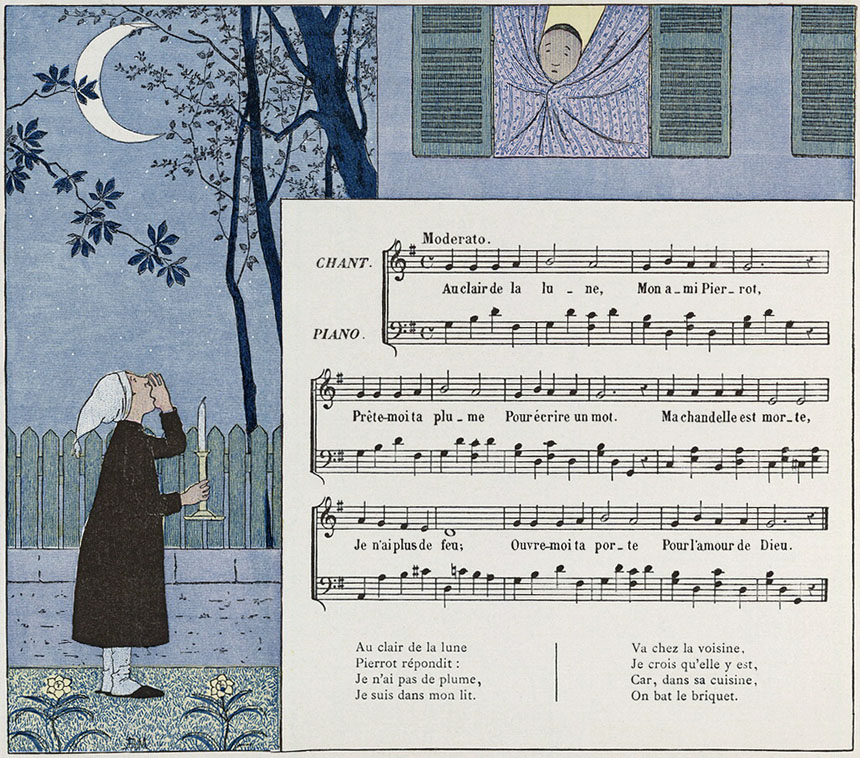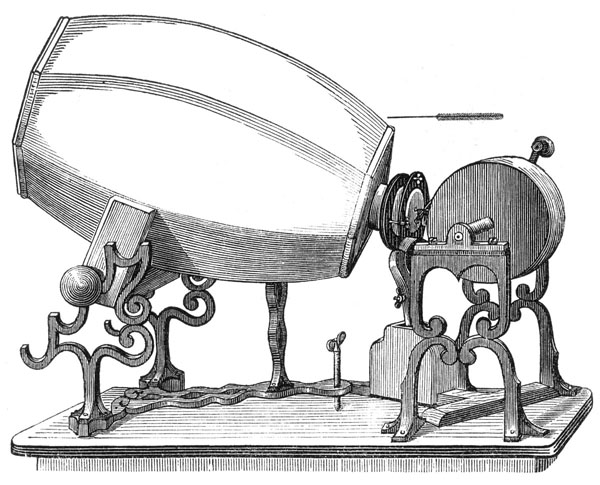On April
9 the first line of
Au clair de la lune was recorded by Édouard-Léon Scott on his
Phonautograph. This is "the earliest clearly recognizable record of
the human voice yet recovered." See First
Sounds for a comprehensive story of this recording and its restoration.

Suggested celebration:
Glass of French wine while viewing the moon, holding one lit candle
and listening to Au
Claire de la Lune fragment (believed to be the voice of Leon
Scott) - soundtrack courtesy of First
Sounds.

Illustration from
"Au Clair de la Lune", traditional French folk song, reprinted in
a French children's book Vieilles Chansons pour les Petits Enfants:
Avec Accompagnements by Widor, Charles Marie, 1844-1937 (book text),
Louis-Maurice Boutet de Monvel,1855-1913 (illustration)- source
Wikimedia Commons.

Scott's 1859 Phonautograph
"Au clair de la lune, mon ami Pierrot,
prête moi-,"
Here is what Firstsounds.org
has updated (as of 4-2-2022) regarding this recording:
Au Clair de la Lune - By the Light of
the Moon (April 9, 1860) [#36] Scott recorded the French folksong
"Au Clair de la Lune" on April 9, 1860, and deposited the results
with the Académie des Sciences in 1861. It remains the earliest clearly
recognizable record of the human voice yet recovered. The words have
been a matter of controversy, but the latest playback—unveiled in
May 2010—establishes them as “Au clair de la lune, mon ami Pierrot,
prête moi—,” rather than “Au clair de la lune, Pierrot répondit,”
as originally announced. The latest work also reveals that Scott had
allowed the cylinder to slow down—possibly to a complete stop—between
the words “Pierrot” and “prête,” perhaps indicating a pause to check
how much unrecorded space was left on the sheet.
Full more information see Firstsounds.org

April
9 -
On this Day Factola